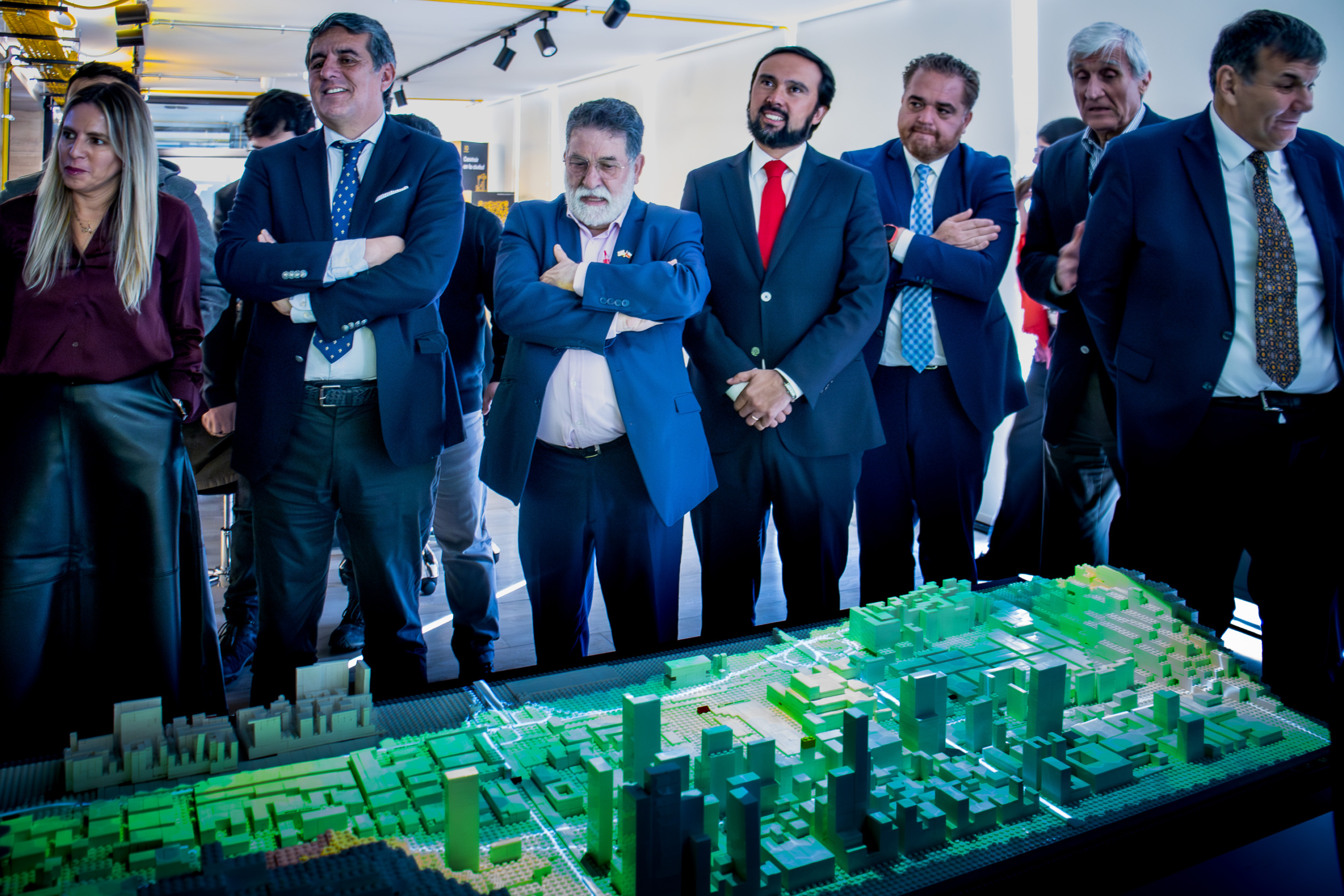For two days, the Biobío Region hosted the “Trans-Andean South Central Axis Summit”, a meeting that brought together the governors of the regions of Maule, Ñuble, Biobío, Araucanía, Los Ríos and Los Lagos, together with authorities from the Argentine province of Neuquén. The objective of this meeting was to articulate a collaborative work aimed at strengthening the port, railway and road infrastructure of Biobío, with a view to facilitating its exports and imports.
In this context, the participating authorities paid a visit to City Lab Biobío, in Concepción, where they learned about the first urban laboratory that the Massachusetts Institute of Technology (MIT) articulates in our country. There, the projects that are currently being developed in collaboration with the GORE of Biobío were presented, among which the Metropolitan Regulatory Plan of Concepción was highlighted, which in a pioneering manner in Chile will submit this instrument to an evaluation to understand its possible implications in the future development of the city.

Sergio Giacaman,
Regional Governor
“What we wanted to do was to present the City Lab to the governors, so that they could get to know it and request services to simulate transportation and urban densification experiences in the municipalities of their regions. The governors were left with a good impression, especially those from regions that are facing challenges of connectivity and urban densification and need to be able to simulate different scenarios to be able to project investment”.

Fernando Pérez,
Principal Director City Lab Biobío
“The main purpose of the visit was to show the governors the cutting-edge tools that are being used in Biobío to improve the decision-making processes related to the planning of their territory. The idea is that the other regions see in the technology and science of the Biobío a fundamental tool to project a collaborative and efficient work among the regions of the southern zone, and in this way strengthen strategic sectors.

For his part, the regional governor of Ñuble, Óscar Crisóstomo, especially valued the incorporation of the innovation factor in urban decision-making processes: “We are going to observe very carefully how our regions can carry out similar actions, based on data and using science as an ally to improve people’s living conditions”.
Along the same lines, the Governor of Los Ríos, Luis Cuvertino, said that “today, after learning about City Lab Biobío, we realize that there are simulations and data-based work that allow us to make informed decisions”. He also stated that he will return to his region with the intention of replicating this experience in Valdivia.
Thanks to its international projection, in October City Lab Biobío will be the organizer of the Summit Cities in Transition, one of the most important global meetings on urban development that will bring together 150 researchers from 10 city science laboratories belonging to the MIT network. This event will position the city and the region as a reference in urban innovation and territorial collaboration worldwide.



